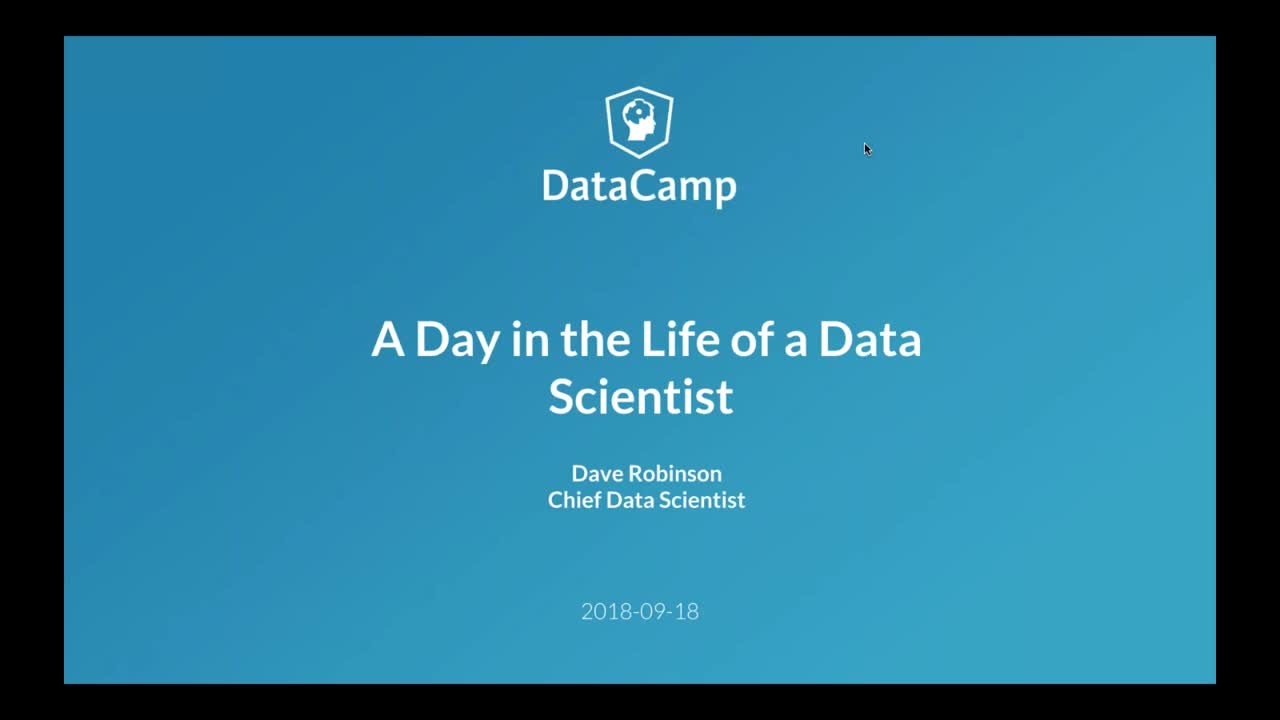Speakers
Training 2 or more people?
Get your team access to the full DataCamp library, with centralized reporting, assignments, projects and moreA Day in the Life of a Data Scientist
November 2021
Related
webinar
Inside the Data Science Workflow
Learn all the steps to drive actionable insight in the data science workflow.webinar
How To Land a Job in Data Science
Learn how to land a job in data science and how DataCamp can help.webinar
Data Science for Business Leaders
Here's how to build a high-performance data team aligned with company strategy.webinar
How to hire and test for data skills: A one-size-fits-all kit
Need to hire data scientists or analysts? This guide shows you how.webinar
Data Skills to Future-Proof Your Organization
Discover how to develop data skills at scale across your organization.webinar
